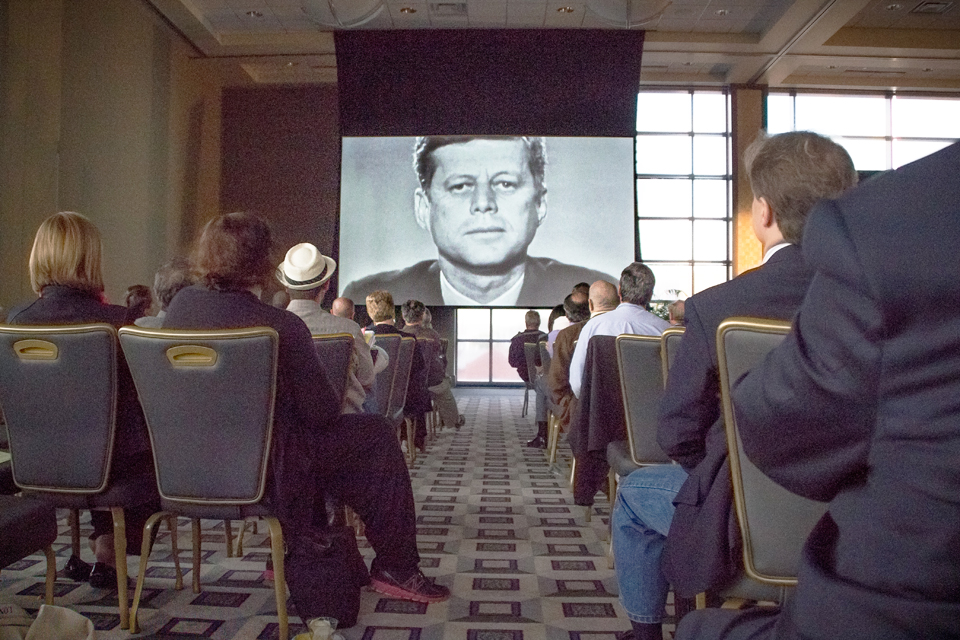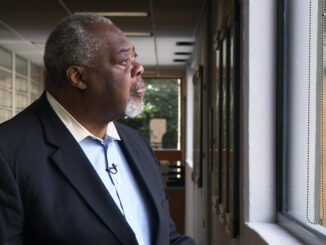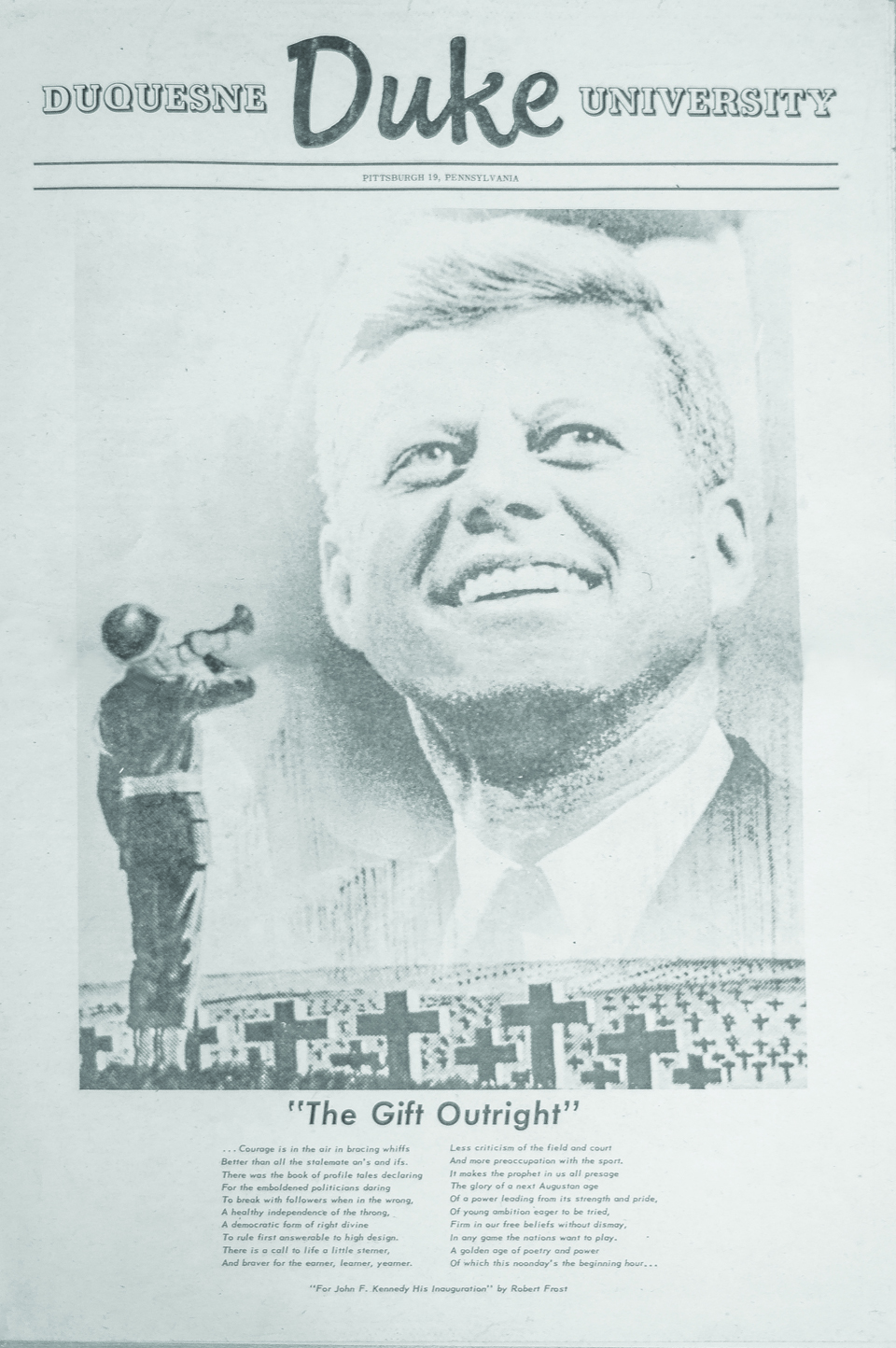
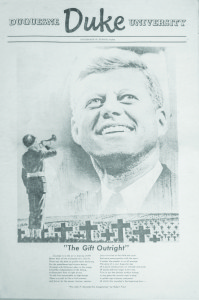
By Julian Routh | News Editor
Everyone remembers where they were when President John F. Kennedy was assassinated.
It was a moment that has withstood the test of time. At half-past-noon on Nov. 22, 1963, Kennedy was fatally shot by Lee Harvey Oswald while his motorcade rode through Dealey Plaza in Dallas.
With the 50th anniversary of the assassination Friday, people who lived through the event will be reminded of where they were and what they were doing.
Duquesne Vice President for Legal Affairs and General Counsel Linda Drago was in her seventh grade class preparing for a Christmas program when the school principal came on the loud speaker and said the President had been murdered.
Drago felt “very disturbed” when she heard the news. Kennedy was a hero of her generation.
“Someone murdered our hero,” Drago said. “It was really a time that stays in the mind of everyone who had lived through that time.”
Biology professor Peter Castric was in the Army and heading into a mess hall when he heard the news, and felt “shock” and “disbelief.”
Associate liberal arts Dean Evan Stoddard was in his house near Brigham Young University when his friend called him and relayed the news.
Stoddard, a BYU sophomore at the time, was “horrified,” but did not immediately know all the details.
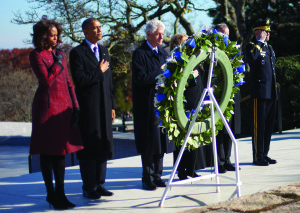
“We had no TV, so I went in search of a TV and saw some of the later events as they transpired that awful day, but also gleaned information by word of mouth from others at the dining hall and as we got it from newspapers and radio,” Stoddard said.
News of the assassination slowly traveled across the world. The Rev. Sean Hogan was in Ireland, where Kennedy visited in June 1963. Hogan, who found out said he felt frightened, and that the news had a “major emotional impact” on the country.
“He had a tremendous reception in Ireland because he had come to visit,” Hogan said. “[The news] was emotional.”
In days after the assassination, the vibe in America was “depressing,” and people were still in disbelief, adjunct mathematics professor David Rauth said. Drago said people were glued to their televisions for days after, following every minute of what was happening.
Rauth said that “whether you liked him or you didn’t like him,” it was still shocking.
“I sure respected him,” Rauth said. “He was a fine man. I felt devastated.”
Theology department chair Maureen O’Brien, who was in first grade at the time, said it was hard to deal with because her Catholic parents were distressed. Kennedy was the first Roman Catholic U.S. President.
“I remember my parents being very upset because they were good Catholic folks and very devoted to the Kennedy family,” O’Brien said. “They thought [Kennedy] and his wife and children were so wonderful.”
At six-years-old, O’Brien was around the same age most current college students were when the September 2001 attacks occurred. When news of the JFK assassination spread, O’Brien was “completely confused and afraid.”
In an issue of The Duke after the assassination, former editor-in-chief Susan Muto described the scene at Duquesne.
“Duquesne poignantly felt this death. Like the rest of the world, a deep sense of numbness and shock prevailed. Mostly each person wanted to be alone…Bluff st. was quiet, almost deserted where less than an hour ago students had clustered in frightened groups around car radios.”


